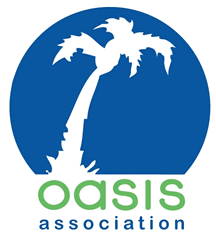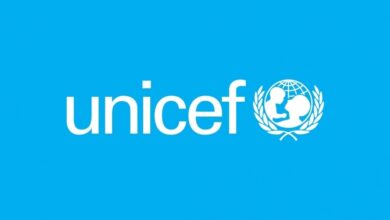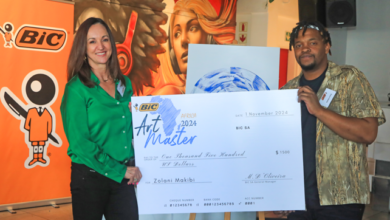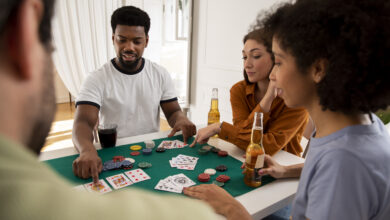Oasis Association – ‘Creating jobs for intellectually disabled people’

With more than 60 years of activity, Oasis Association is considered a model of non-profit organization in South-Africa. Their mission is to help people with intellectual disability to realize their potential. Five types of social-enterprises have been launched to create jobs for these people, in different fields: waste management, contract units, bakery, book shops, and tea garden. With a budget of over 12 million rand each year, Oasis Association is one of the main social actors of Cape Town.
Interview conducted in February 2014.

SparkTour Africa: Why Oasis Association was created in 1952?
Desiree Behr, Donor Development Manager of Oasis Association: It was started by parents as a school, because there were no mainstream school for their children with intellectual disability. There was nothing, no where for children to go. A month after the first meeting, they bought their own property, and they started what eventually became the school.
‘It was started by parents as a school, because there was no mainstream school for their children with intellectual disability.’
More than 50 years after the creation, what does Oasis Association do today?
The school is now being run by the state. When they took it over, we realized that there were no training and job opportunities. So, the first thing we started was a training center, which eventually became a protective workshop. With time we added new arms because of the community needs.
The one was day centers for disabled children; the other was four houses to accommodate disabled people. For the protective workshops, we only did labor for companies outsourcing areas of their production line. In one month, we lost three major contracts, which mean that we had no money and no work for disabled people. When it started 22 years ago the recycling project was the first social-enterprise we created. We started the shop after that because we got so many beautiful things from recycling, and we did not want to throw them away. Now, there are two shops, the Claremont one is open from Monday to Saturday and the Pinelands shop is open Monday to Friday and one Sunday a month. We started a bakery the same year that the first shop opened to feed our workers, because a lot of them are poverty-stricken, any often the only food they get is here. Then, we wanted to have tea in the garden… so we started a tea garden! Everything is community-driven.
‘With time we added new arms because of the community needs. […] Everything is community-driven.’
It is a very natural process?
Very organic, we do not sit in a strategic meeting and say: ‘what we are going to do to make money?’ We meet a need. We have got a very clever board of directors, and a clever boss. We think far, out of the box.
‘We think far, out of the box.’
Oasis Association received a lot of awards. What are the main results that you are proud of?
I think that we have made a difference to many people’s lives. We have given people a sense of dignity, a sense of being part of the community as disabled workers. Because when they do something productive and they are earning an income, a lot of them are able to create and look after their families. Furthermore, a lot of kids have been unable to walk, they can now walk thanks to the day centers, they can be toilet-trained, and they can learn to feed themselves. A lot of parents can go to work because they know the kids are safely cared for during the working day.
What was the biggest difficulty since the creation of Oasis Association?
The biggest difficulty was losing the contracts. It was before my time, but the employees are still affected. The ongoing challenge is always money, because we have a fixed group of people that have nowhere else to go. If we don’t have the money we still have to provide the service.
‘The ongoing challenge is always money, because we have a fixed group of people that have nowhere else to go.’
It is a big responsibility!
It is a very big responsibility. Another challenge is the balancing act between what our core purpose is – the service for the disabled – and meeting the needs of our customers in the shops, the bakery…
Because of the hybrid model of NPO and social enterprise in the same time?
That is exactly it.
Do you have three words to describe the spirit of the organization?
Life, positive, and passion.
How do you see Oasis Association in 10 years?
We are busy developing a house that will get people extra care: nursing care, or for those who are aged. We are also working on a day center for adults who cannot be productive, but they need an activity group. At the moment, I cannot even think beyond these two challenges. In 10 years, I imagine that we will be very close to be self-sustainable, if we carry on the way we are. Every year, the amount that we raise ourselves increases, because we focus on making it profitable with social purpose.
‘Every year, the amount that we raise ourselves increases, because we focus on making it profitable with social purpose.’
Today, a lot of young South-Africans want to embark on an entrepreneurial adventure to help society, do you have one advice for them?
First of all you have to look at what you are interested in, what you have a passion for. Then, you have to research to see if there is a niche market, to see if you can expand. You have to be prepared because things are difficult at the beginning: no money, no salaries. You can start looking for like-minded people to invest with you.
A last word?
I love Oasis, it is my passion!




